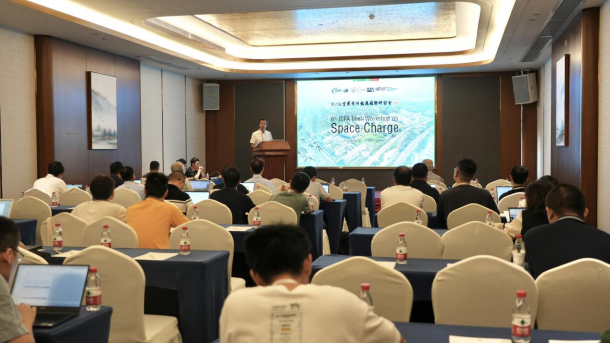The 6th International Committee for Future Accelerators (ICFA) Space Charge Effect Workshop was held 11th-13th September in Dongguan. More than 60 accelerator researchers and scientists from countries including China, Switzerland, Germany, Japan, Italy, and South Korea attended the workshop.
The workshop was co-organized by the Institute of High Energy Physics and the Institute of Modern Physics. The workshop mainly focused on the space charge effect issues faced by high-current accelerator facilities worldwide and the latest research progress.

The ICFA Space Charge Effect Workshop was initiated by the European Coordination of Accelerator Research and Development (EuCARD2) in 2013. Its aim is to discuss the latest research findings on international cutting-edge space charge effects and promote the development of advanced particle accelerator physics and technology. The workshop is held every two years and has been hosted in Switzerland, the United Kingdom, Germany, the United States, and other countries. It was China's first time to host such an event.
In recent decades, with the vigorous development of high-flux neutron sources, clean energy, and high-current heavy ion devices internationally, high-current particle accelerators have found increasingly wide applications in many important fields such as scientific research, industrial production, and new energy engineering. Effectively suppressing space charge effects is a common challenge faced by high-current accelerators worldwide.



